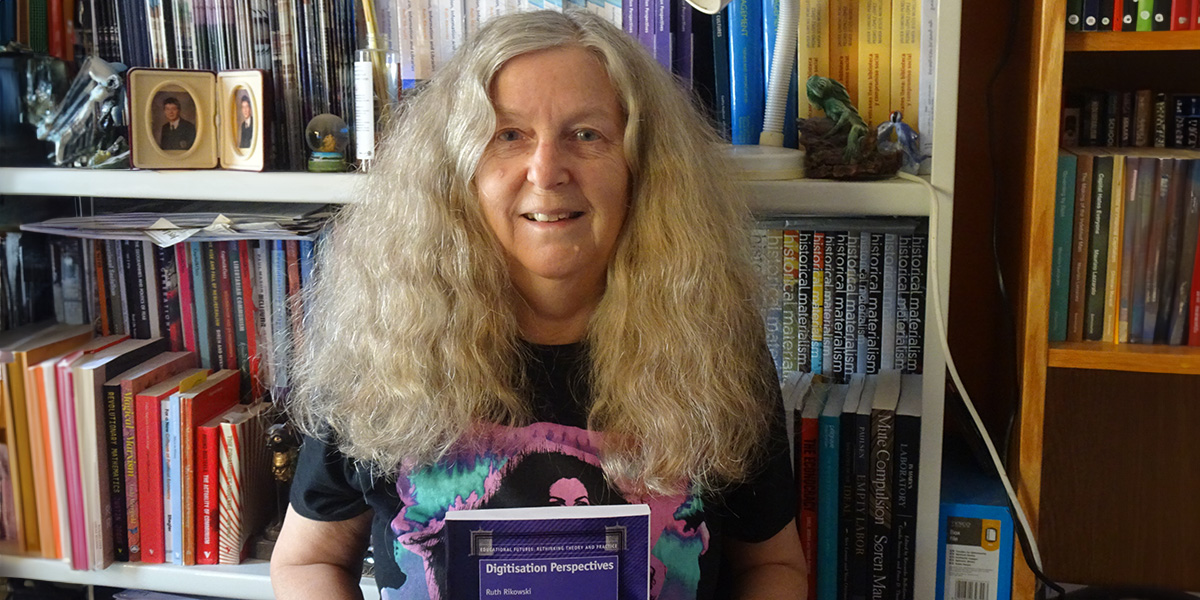
Would readers prefer an AI version of a Jane Austen novel to the original? Ruth Rikowski, a professional librarian and information professional, and published author spoke at a CILIP London event on libraries and AI, raising some interesting
questions about the future of this technology.
This article is featured in the AI Hub
Background to the talk
In late 2023, I accepted an invitation to give a talk at an online conference organised in France. The Conference was ‘Trends and Training Conference: modern library challenges, achievements and ideas: Digital Transformation of Libraries
in Practice’.
Earlier this year, I received an email stating that CILIP-in-London was being relaunched.
I had enjoyed attending CILIP London meetings before lockdown where I had given a talk on my book, ‘Globalisation, Information and Libraries’.
At the re-launch I spoke, to two members of the CILIP-in-London Committee – Carl Banks and Cassie Bowman and told them something about my background.
The result was that I was invited to give an online talk to a CILIP-in-London meeting in September this year.
In preparation for my talk, I enthusiastically researched the topic of ‘AI and Libraries’ in a short space of time.
AI and Libraries Talk summary
The talk proved successful, with 100 people joining from across the UK and beyond. We decided on an interactive lecture approach, where people were allowed to interject at appropriate times with questions
and comments.
The presentations and discussions covered a broad range of topics:
- Some definitions of AI
- AI – an Umbrella Term
- Historical Overview of some important AI breakthroughs
- Brief Literature Review of Application of AI in Libraries
- AI Technologies and Applications used in Libraries
- Robots, Libraries and AI
- Benefits of AI in Libraries
- Challenges of AI in Librarie
- Creativity, Magic, Libraries and AI: Brainstorm
- Magic and Libraries
- The Future of AI in Society
- The Future: the Transformative Power of AI and Creativity and its Potential Implications for Public Libraries
This included providing the international participants with information about the different AI technologies available for Libraries; such as Virtual Assistants and Chatbots for answering FAQ and
robotic library systems for shelving.
I also outlined some benefits (e.g. releasing staff from mundane jobs) and some challenges (e.g. threats to jobs).
Results from the discussions
Some participants were more enthusiastic about AI than others, but there seemed to be general agreement that we needed to embrace it in various ways.
Some thought its claims were exaggerated. However, Copilot, the Microsoft AI package (which was referred to briefly in the discussion, albeit not by name) is certainly very much alive
and thriving (especially in some City Firms) and seems to indicate that AI is not being over-hyped.
There was also concern about the inevitable bias that would be present in the packages. There was general agreement that some form of human intervention would be needed, as computers
cannot pick up on all the subtleties.
One wonders what the future of the public libraries will be with AI.
Questions and thoughts after the talk
Will it be possible for libraries to still remain magical places?
Or could we lose physical libraries altogether and be reliant on digital libraries? If the physical library does remain what types of books will it house?
If AI software can write novels based on the style of an author, for example, what effect might this have on authors/potential authors and the library collection
and acquisitions policies?
Will we continue to have live book talks and book launches?
If a company uses AI to generate ‘new’ classical fiction based on the traditional classics, then who will own the copyright?
And what would be the impact with companies deciding what new books to write in an AI style – e.g. D.H. Lawrence now out of fashion so AI books
in his style are perhaps not produced. Whereas Jane Austen is back in fashion so AI books in her style might be written. Would readers prefer
the AI version or the original version? If people read the AI version might this encourage or discourage reading of the original version?
Ruth’s talk will be made available on YouTube, sign up to the CILIP newsletter to find out when it comes out.
'Digitisation Perspectives' is available from Sense Publishers, and 'Globalisation, Information and Libraries' is available from Chandos
Publishing. 'Knowledge Management: Social, Cultural and Theoretical Perspectives' is also available from Chandos Publishing
Ruth Rikowski is Series Editor for Chandos Information Professionals Series; Editor of Digitisation Perspectives, Sense Publishers:
Rotterdam, The Netherlands, 2010
Find Ruth on Academia
Sign up to the newsletter
Sign up to the CILIP newsletter to get the latest updates on how CILIP is advocating for libraries, and the latest news
impacting our sector.



